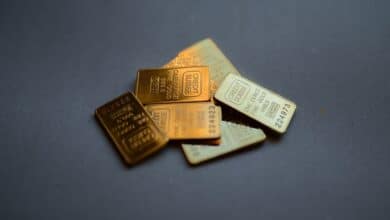How to Become an Investor from Scratch

Non-investors have a couple of major hang-ups that typically keep them from getting started down the investor’s road. One is knowledge; the other is resources. Both of these realities make perfect sense. Neither should cause you sufficient consternation to keep you from becoming an investor. For the first point, it’s important to realize that almost nobody is given in school the knowledge they need to properly invest. Our parents don’t tend to pass on these little nuggets either. The antidote to this way of thinking is that we live in a time where it’s easier than ever before to self-teach. Many educational resources for new investors are available online. So spend an hour or two, several times a week, and lay the groundwork for what could be a significant earnings tool for you in the not-too-distant future.
The other problem is finances. Where do you start if you’re a new investor with nothing? In the beginning, it’s important for investors to start building credit. Good credit is the foundation on which you’ll get people to let you borrow their money, for cheap. For people with middling credit, borrowing is possible, but it’s so expensive it’ll likely eat up any earnings you might get from your investments. Some people recommend starting with a secured credit card, one where you make a principal deposit against which all future borrowing is collateralized. From there, borrow steadily and always make sure you pay your debts and bills promptly. Your credit score will soon demonstrate good credit behavior.
Now is the time to start investing. You will, of course, need to adjust your lifestyle to maximize investment monies. This means budgeting fastidiously, looking for savings opportunities everywhere, and making sure you are earning as much money as possible. Once you’ve carved out extra funds that you can spend on things like investments, it’s time to decide what these early investments will be.
I usually recommend that new investors invest for today, tomorrow, and many years from now. “Today” investments will show you results immediately. These are investments which will teach you the ropes, from which you will learn lessons, and (hopefully) gain some money. For these, Forex is the perfect model, inviting new users to make value judgments on how assets and currencies will change in value in the immediate future. This requires you to learn about real world events, and the way they play into what stuff costs. For example, according to Daily Forex, “Very recently, the New Zealand Dollar and its counterpart, the Australian Dollar, were hit hard in Asia trading at the divergence of monetary policies among the US Federal Reserve Bank.” Get the hang of this way of thinking and you’ll become a very good investor indeed.
“Tomorrow” investments are in fields like real estate, which immediately begin earning you wealth in the form of equity. It’s impossible to tell if a piece of real estate will continue being a valuable asset into the distant future, but it’s good for tomorrow. Real estate also offers many tax benefits. “Many years” investments are your retirement investments, which will only pan out many years or decades from now. By combining all three of these strategies, as well as the lifestyle changes I mentioned earlier, you can become an investor from scratch.
Do you have any experience with investing?




I started investing six months ago, though it’s a bit late. I know that investment is the one of the best ways to make my money grow faster instead of my money stagnant in banks. Thanks for providing these three investment tips, which will surely help me.